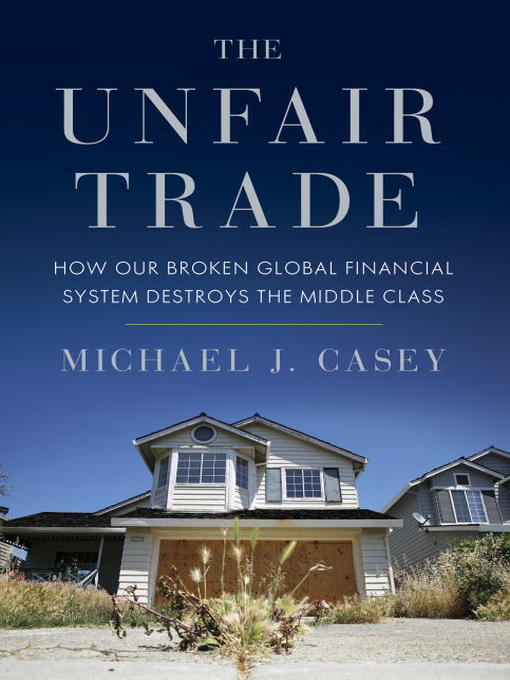
The Unfair Trade
How Our Broken Global Financial System Destroys the Middle Class
کتاب های مرتبط
- اطلاعات
- نقد و بررسی
- دیدگاه کاربران
نقد و بررسی

May 1, 2012
A Wall Street Journal managing editor and columnist explains how the distorted policies underlying the global financial system undermine the Average Joes of all nations. Simultaneously outraged, bitter, fearful and despondent, the middle class surveys the economic wreckage of the past few years with little but contempt for CEOs and other corporate elites. From a cab driver in Andalusia, a seamstress in Indonesia, an assembly worker in Shanghai, an ambulance driver in Mexico, and many others, the widely traveled Casey (Che's Afterlife: The Legacy of an Image, 2009) collects similar stories of middle-class disenchantment. The author attributes the world's middle-class misfortunes to the uneven playing field created by a mismatch of fossilized national policies with the fast-moving exigencies of globalization. The "perverse economic incentives" of this perilous new world account for the dangerous codependency of China and America. China's historic rise and outsized footprint has transformed beef-loving Argentines into soybean producers, helped turn Western Australia into one large mineral deposit, and sown chaos in Mexican manufacturing towns unable to meet "the China price." Meanwhile, the staid nation of Iceland recovers from an episode of banking madness that brought the country to its knees, and the survival of the European monetary union remains in serious question. In a world of banks too big to fail and politicians beholden to big-money contributors, ordinary citizens have borne the brunt of the economic pain. Rather than forcing them to pay any more of the costs of a broken system, Casey calls for a series of systemic national and international reforms, almost all of which require an unprecedented degree of cooperation, to help restore a trust and confidence dangerously shaken. A well-reported, deeply serious appraisal of the exceptional damage a dysfunctional system inflicts on unexceptional people.
COPYRIGHT(2012) Kirkus Reviews, ALL RIGHTS RESERVED.

May 15, 2012
Financial journalist Casey travels the world to research how we have failed to stop a powerful, globalized financial system that benefits a privileged few while subjecting everyone else to uncertainty and instability. We learn of the extreme working conditions of pliant and dependent Chinese employees in plants making technology products for American companies. American middle- and lower-income households, the backbone of the U.S. economy, bore the brunt of the 2008 housing-financial bust, and they suffered most of the eight million job losses since 2007 and most of the seven million foreclosures. Noting that globalization is an unstoppable train, Casey concludes with suggestions for reform, including a common approach to international financial regulation, transparency in global financial systems, a solution beyond Dodd-Frank regulation for winding down cross-border institutions, and measures that eliminate government policies benefiting one class of citizens in preference to another. All will not agree with Casey's analysis, but he offers valuable perspective on critical issues in this timely book.(Reprinted with permission of Booklist, copyright 2012, American Library Association.)

























دیدگاه کاربران